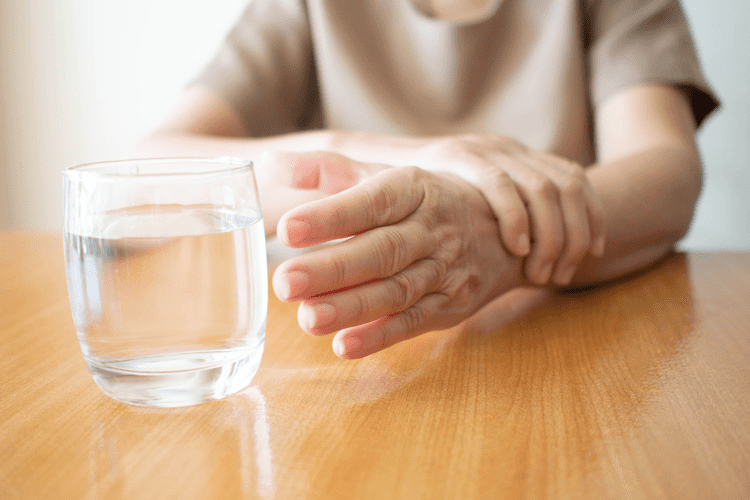As you might know, pre-mixed spirits are lower in alcohol content than https://ecosoberhouse.com/ your traditional vodka (about 7% ABV, or alcohol by volume). And some people think that this might be a healthier option because it’s lower in calories and alcohol. Vodka is known for being a low-calorie drink option, but that doesn’t mean it’s calorie-free. A 1.5oz shot of vodka contains an average of 100 calories—comparable to one small glass of wine or a can of beer.
The effect of alcohol on fat burning can also contribute to weight gain, as alcohol can reduce the body’s ability to burn fat as fuel. Have you noticed that the longer you drink vodka every night, the more alcohol you need to get to the same level of intoxication? That’s not uncommon, as noted by registered dietitian Laura Krebs-Holm. “Many people find that if they drink alcohol regularly, they do not feel the effects of alcohol as keenly with one or two drinks,” she shared with The List. “However, health benefits have only been linked to moderate alcohol consumption, which is one drink for women, and two drinks for men.”
Dr. Friedman’s Health Blog
Sleep deprivation increases hormones that increase appetite and fullness. In terms of nutritional value, vodka has slightly fewer calories and carbohydrates than beer. While a standard beer typically contains about 150 calories and 13g of carbs, a shot (1.5 ounces) of vodka contains about 97 calories and 0g of carbs. When you decide to quit alcohol, your body undergoes positive changes. First, your liver can focus on metabolizing fats without the interference of alcohol. This shift can contribute to a reduction in overall body fat, including that around the belly.
Does alcohol stop your body from burning fat?
If you are trying to lose weight, it is important to remember that alcohol should only be consumed in moderation. This means that you should not drink more than one or two alcoholic beverages per day, and you should make sure to eat a healthy diet and exercise regularly as well. The calories from regularly consuming drinks containing vodka and other mixers may eventually lead to weight gain since you’re consuming additional calories. Additionally, it has been found that alcohol can also lead to increased appetite, so it’s important to be mindful of this when consuming drinks with vodka. However, many people mix vodka with other sugary drinks, creating a higher calorie beverage.

Alcohol Affects the Body’s Fat-Burning Capability
Managing your weight while enjoying alcohol is possible with some practical strategies. Opting for low-calorie alcoholic options, like light beers and dry wines, helps avoid unnecessary weight gain. Using calorie-free mixers with distilled alcohol can also reduce your total caloric intake. Studies have shown that moderate drinking can enhance metabolic function does vodka cause weight gain and encourage weight loss.
Popular in Food & Drink

Balancing alcohol consumption with weight loss goals involves adopting mindful strategies. Here are detailed lifestyle and diet tips for those who choose to drink moderately while aiming for weight loss. Speaking with a dietitian can be helpful to lower your body mass index and drop weight.
Make a Plan for Drinking
Studies show that even moderate alcohol consumption shortens REM sleep. It’s a crucial stage for memory consolidation and overall well-being. Substance abuse You’re more likely to lose weight by combining alcohol reduction with healthier lifestyle choices. Leptin is our primary satiety hormone, which helps us feel full and satisfied after eating. You might recognize GLP-1 as the “Ozempic hormone,” another one that regulates appetite and digestion and can help with weight loss when elevated.
- There is no hard-and-fast rule about how much weight—if any—you will lose if you quit drinking for a month.
- This means that when the body uses alcohol as its primary energy source, excess glucose and lipids are converted into adipose tissue, or fat.
- To eliminate it as quickly as possible, all other nutrients take a backseat – including fat burning.
Expert solutions to optimize your prostate health.
To put this into perspective, a 12-ounce can of regular beer contains around 150 calories, according to a study. In contrast, a 5-ounce glass of red wine clocks in at approximately 125 calories. This imbalance can lead to overeating and cravings for high-calorie foods, contributing to weight gain. Drinking alcohol can contribute to increased body weight, as both alcohol and obesity negatively impact an individual’s body mass index (BMI), leading to a higher-than-healthy BMI. Therefore, the objective of this article is to provide an update on the link between alcohol intake and obesity. Furthermore, factors that may explain the conflicting findings in this research area are discussed.
- Additionally, alcohol consumption can affect the hormones leptin and ghrelin, which are involved in appetite control.
- We need vitamins and minerals for essential biological processes like cellular metabolism and regulating inflammatory pathways.
- Remember that when you drink alcohol, you are replacing potentially healthy, and filling, food with calories that will not fill you up.
- Those extra numbers on the scale are likely a result of bloat, water retention, and a digestive system that’s not firing on all cylinders.
- If someone was already obese, they had a 35 percent higher risk of staying that way and gaining more weight.
Diet Mixers: What’s Really in Your Vodka Drink?
By drinking responsibly, choosing low-calorie mixers, and staying active, you can enjoy vodka in moderation without significantly affecting your weight. The impact of alcohol on weight gain is influenced by various factors, including the amount and frequency of consumption, individual body composition, and lifestyle factors. While light-to-moderate alcohol intake may not lead to weight gain, regular heavy drinking can result in weight gain over time. Moreover, alcohol can also lower inhibitions, leading you to make poorer food choices.
All food that we eat contains calories, and we need to eat a certain amount of calories each day to live. Speaking of macronutrients, 7 calories per gram of alcohol falls right in between the 4 calories per gram from carbohydrates and protein, and 9 calories per gram from fat. Keeping an eye on your drinking, along with eating healthfully and getting enough exercise, can help you prevent a beer belly. Alcohol is an inflammatory substance, meaning it tends to cause swelling in the body.
